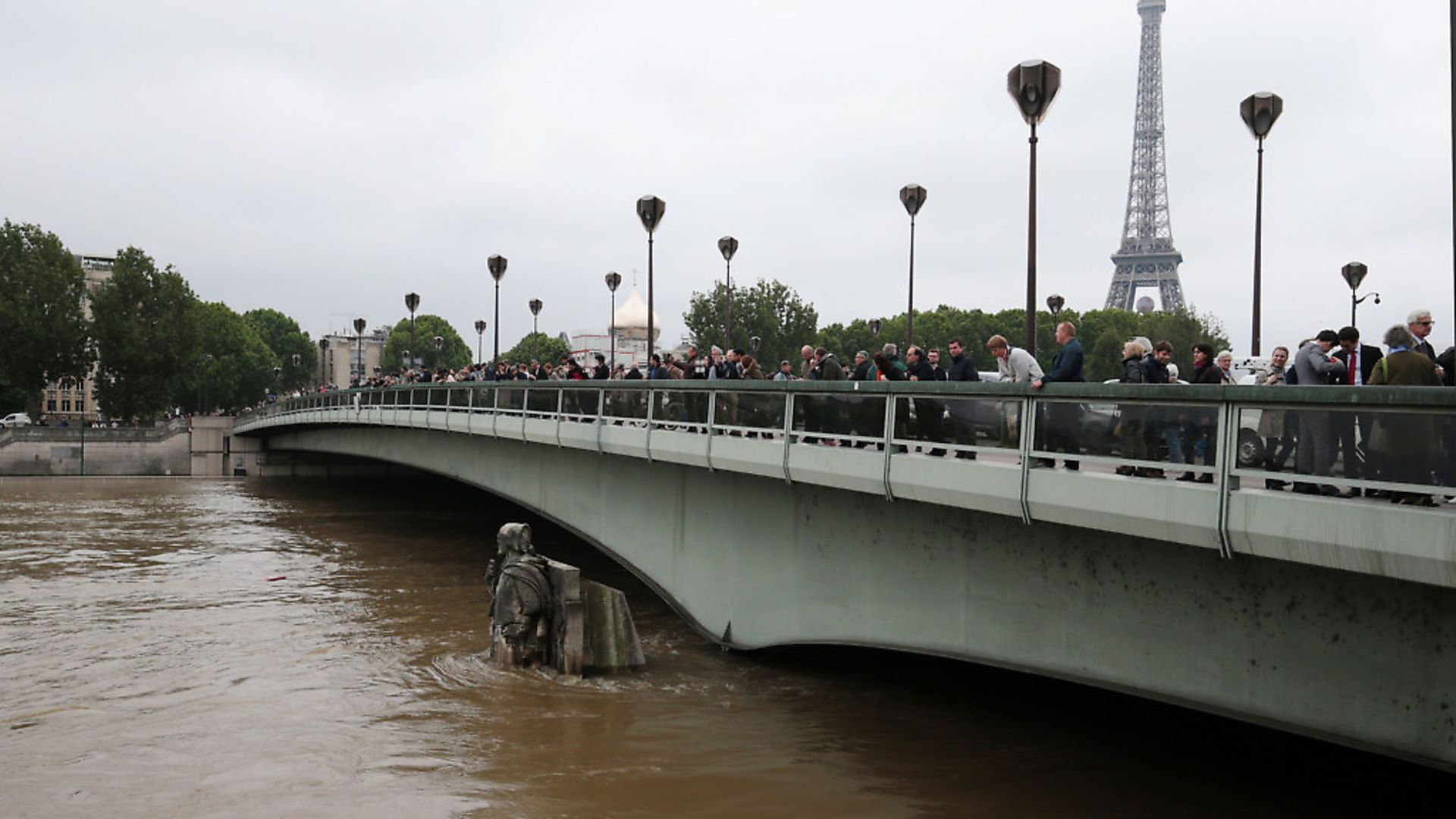
WILL SELF observes the lack of cultural integration in Paris.
Last week, Ibrahim and I met every morning, at 11, at the Café Liszt in the Place de l’Eglise for an hour’s French conversation. Actually, none of the above is strictly accurate – all the names having been changed for reasons which will soon become clear. Ibrahim had been pretty reluctant to come in to town from his more usual haunts, out by the Porte de Clignancourt – and I could understand why: in some senses Paris is an inversion of London when it comes to its black and other ethnic minority inhabitants, who seldom live in the affluent city centre. And then there’s the migrants, who are camped in force at Porte de la Chapelle – entire bidonvilles, with hundreds of inhabitants, that spill out along the city’s canals in tangles of plastic sheeting and malodorous sleeping bags.
After work, outside overground stations in the banlieues, you’ll see the police, backed up by their paramilitary colleagues in full Robocop-style black-rubber body armour, separating out the sheep from the goats, and putting the latter up against the wall while they check their papers. All of which is by way of saying, that even now the state of emergency has been ended and military patrols have gone from the streets, there still remains a charged atmosphere – one Ibrahim seemed to earth, as he sat twitching on the terrasse, on the other side of the little round table upon which we’d arranged our notebooks.
Looking back at the pages of mine, now, I can see the main subjects and themes of our talks, if not their precise tenor. I’d been introduced to Ibrahim by a mutual friend, so I knew he was a former teacher from Guinea – but it hadn’t taken me long to scrawl: Pourquoi avez-vous quittez Guinée? After that, in between furtive glances at the bourgeois ladies having their mid-morning noisettes, and the tourists sipping Coke Zeros, the story came out: a primary school teacher and part time journalist, Ibrahim had written articles for the local paper in the provincial town where he lived, denouncing corruption – worse, he’d had the temerity to organise a union. Oh, and of course, this being a sub-Saharan African country, there’s a further postcolonial divide-and-rule angle to his predicament.
As a Fula – who are spread throughout west and central Africa – Ibrahim is a member of the largest ethnic group in his own country, but still discriminated against. Why? Because Guinea’s European overlords favoured the Malinké, who, while constituting only 30% of the population, have continued to hold the reins of power since independence in 1958. Of course, it’s precisely those colonial overlords – the French – who Ibrahim is now at the mercy of.
His exile began when he crossed the border into Mali, one step ahead of a government that doesn’t hesitate to attack peaceful demonstrators and imprison and torture journalists. From there he went to Senegal, where, unable to work, he was hooked by people traffickers who took him on to Libya, where he was imprisoned for a year, effectively a slave, working on building sites. Eventually he escaped, and managed to squeeze himself on to one of the grotesquely overloaded rubber ribs you’ve seen sinking beneath its human cargo in the wine-dark Mediterranean. Ibrahim was in the sea for two hours without any flotation at all, until, by some secular miracle, he was picked up by the Italians and taken to Lampedusa. From there he was allowed to enter France on the basis of his asylum application.
As the child of Francophone parents Ibrahim has a claim to French citizenship – but while the wheels of French bureaucracy grind, exceeding slow, he has to rely on his student identity card alone to free him from the little rassemblements du people organised by the flics. No wonder he’s twitchy. Cursed with 25% of the world’s bauxite reserves, Guinea remains a textbook case of an African nation whose resources are too valuable for anything but the realist of realpolitik to obtain: when I asked Ibrahim if he thought Macron’s Government would be principled in his regard, his eyes flashed with raw anxiety – and I wished I’d kept my mouth shut.
During our last hour together, a couple came and sat at the next table. White with booze-flushed faces, in their fifties, the man had his hair short and en brosse, while his wife sported a savage mullet. Ibrahim became more anxious still – I wondered if he, like me, had spotted the masonic ring on the man’s chubby pinky, and was hypothesising these were supporters of Marine Le Pen, or worse. But then, as we rose to leave and I said goodbye to Ibrahim, the man got up to speak to me: they were, it transpired, a couple from the north of England, and had recognised me from off the telly: “You speak French well,” he said – and I moved at once to disabuse him: “No, no – Ibrahim over there is my teacher, what you’ve been listening to was a lesson.”
Unfortunately, it’s one many French are still unable to hear, since it interferes with their nativist narrative that colonialism is thing of the past – while in the case of the English, we understand it partially at best. Perhaps the African exiles -should try the same tactic as we do when foreigners don’t understand our language: shouting.









